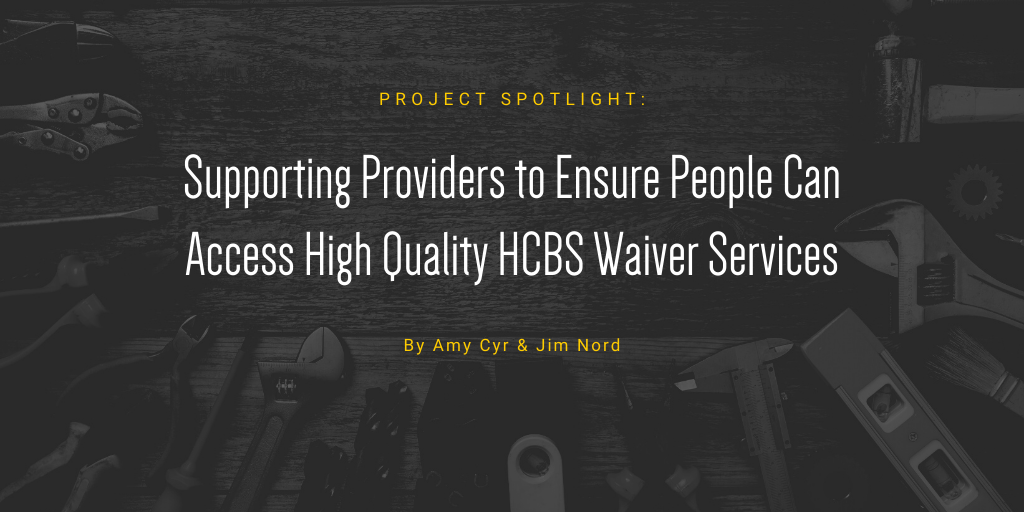
*Note: In the article below, “person” or “people” refers to people who receive Medicaid HCBS waiver services.
Do you or a loved one receive home and community-based services in Minnesota? Are you a provider who supports people to live, work, and meaningfully participate in community life? Then you’re likely aware of the Minnesota Department of Human Services’ (DHS) ongoing work around the federal Home and Community-Based Services (HCBS) rule that is strengthening people’s rights to informed choice and deciding the things that are important to them—and for them.
The Improve Group was excited to continue our strong partnership with DHS on HCBS projects through a collaboration with the Department’s Disability Services and Aging and Adult Services Divisions on a new HCBS provider toolkit. The provider toolkit, released in October, offers guidance, answers to frequently asked questions, and examples of provider practices that support choice and autonomy for people. This toolkit is one more example of DHS’ commitment to supporting HCBS providers so that people across Minnesota can access high quality services in their communities.
Additionally, the toolkit shows providers examples of promising practices that have worked well for their peers. In the toolkit, DHS encourages providers to use it to “generate ideas on how we can all better serve older adults and people with disabilities.” It offers guidance and real-life examples in the areas of person-centered practices, rights, community integration and engagement, transportation, and employment.
For example, the person-centered practices section explains how providers can ensure people they support have informed choice and shares the following promising practice for inspiration:
“Nina is ready to move into a new home, so she shares her housing preferences with her case manager. Nina and her case manager gather a list of possible homes that meet Nina’s needs based on her assessment and preferences. They schedule a time to visit Nina’s top three choices so Nina can meet the providers, see the homes and make an informed decision.”
In this case, the provider is not simply deciding what is important for Nina, but instead supporting Nina with information about housing that meets her needs so that she can make a meaningful choice about where she wants to live. Through this practice, Nina is supported and has the power to make an informed decision about what is important to her and for her in a home.
In our partnership putting together the toolkit, our team collaborated with DHS to think about the agency’s needs, audience, and how the audience could best use the toolkit. We also learned a lot from DHS, including excellent strategies and reminders about the importance of person-centered language.
We were excited to continue our partnership with DHS on this critical work because we value playing a role in helping the state and providers to further strengthen HCBS services. The Improve Group is excited for future opportunities to continue supporting DHS, providers, and people across Minnesota!
Additional resources:
Since launching the HCBS provider toolkit, DHS has also added several wonderful videos on exemplary providers who are using person-centered practices, supporting people to engage in their communities, and assisting people to explore and obtain integrated employment. You can find a trailer here, plus the three videos: Person-Centered Services, Community Engagement, and Integrated Employment.
